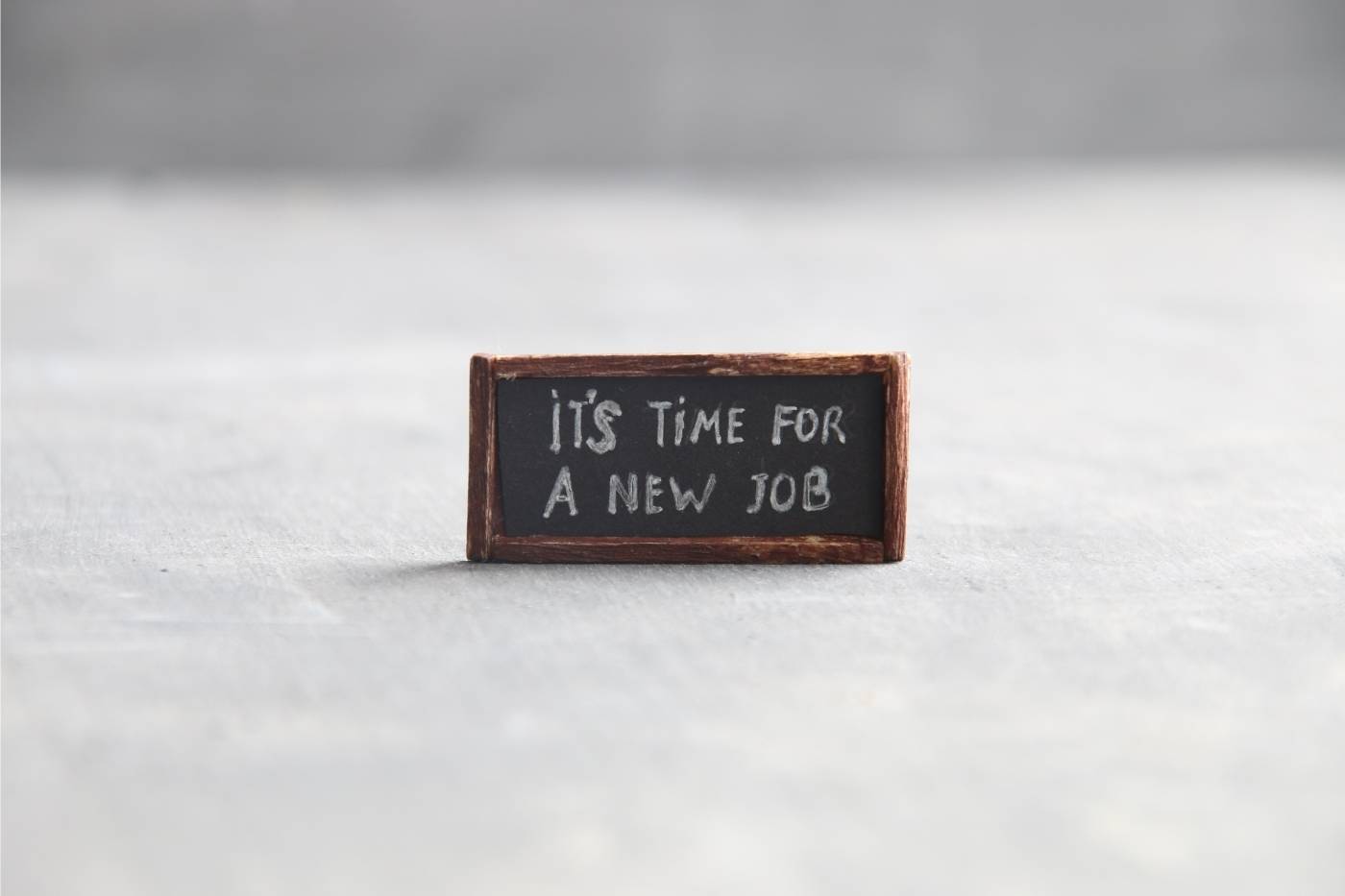Change sometimes needs a little push. If you’re feeling the need for something different, you shouldn’t count on your situation to change on its own.
Instead, consider what you can do to take responsibility for your career and life. Sometimes this will mean making a drastic move like looking for a new job.
A new job is not always the right answer and pursuing change for the sake of change can cause issues, but when you have good reasons to look for another job, it’s worth it to take that step.
Evaluate Your Reasons To Look For Another Job

There can be many benefits to switching jobs. Moving to another company is likely to bring you a bigger and quicker raise and perhaps an opportunity for promotion. You may also be one of those people who find it stimulating and refreshing to periodically take on new challenges, new surroundings, and new colleagues.
There’s an excitement about changing jobs that can be a bit intoxicating. The first few weeks at the new company often feels like the early days of a new romance. You’re “the new kid on the block” and everyone is curious about you and interested in you. You and your new co-workers haven’t yet had the chance to learn about one another’s shortcomings so everything you say and do is observed hopefully and optimistically.
By contrast, “sticking it out” in a job you’ve held for some months or years can feel stifling, boring, and oppressive. The excitement of the early weeks has long since vanished, and in its place is routine work that often seems like drudgery.
You’ve had a chance to discover your company’s and colleagues’ flaws, and they’ve learned about all of yours. As a result, it’s easy to start daydreaming about the next job. But be warned: a desire for change shouldn’t be the primary motivation when considering your reasons to look for another job.
Be Aware of the Downsides to Switching Jobs
We all have days when we want to “chuck it all” and escape to a new job – any job. But that feeling alone usually isn’t a good reason to do it. Remember, job changes have a downside, too.
There’s always a cost and risk involved in shifting companies, industries, and career tracks; it’s never possible to be absolutely certain that your new position will really be better than the familiar one you’re leaving.
There’s also a definite psychological, emotional, and physical cost attached to the personal upheaval of changing jobs. Don’t get me wrong—I’m all for change with a purpose. But you need to really understand your motivations in order to make an intelligent and successful job switch.
15 Questions to Ask When Considering A New Job

The best way to decide whether to stay or go is to ask yourself some serious questions that can help you focus on whether or not leaving your current job makes sense for you. Check how many of these can be answered with “yes”:
- My job offers me real opportunities to expand my career horizons and job skills.
- In my job, I spend at least half of my time doing work I’d like to do more of in the future.
- My job offers significant upside potential for advancement.
- My job offers me the opportunity to meet and work with interesting people from whom I can learn a lot.
- My job gives me the opportunity to manage my own work and take responsibility for the results.
- The people I report to know and value me and my work.
- The people I report to are known and valued by those to whom they report.
- Most days, my job is fairly interesting.
- My job lets me live and work in a geographic location that I am happy with.
- I am paid the kind of salary that I feel is fair and that satisfactorily covers my personal needs.
- There are significant opportunities for advancement in other departments or divisions of my company.
- My employer offers benefits (health care, vacations, retirement plan, etc.) that meet my needs.
- My working conditions are reasonably comfortable for me.
- I like the products and services my company produces.
- I am proud to be associated with the policies and ethical standards my employer represents.
If you can’t say “yes” to a majority of these, you may need to consider changing jobs. But whether you choose to stay or go, do it for the right reasons.
Don’t leave your job just because “everyone else is doing it,” because you’ve been in one place for three or four years, because it will look good on your resume, because you can’t get along with certain people you work with, or because your spouse or best friend is pushing you to move.
Don’t change your job for any reason that does not fit your long-term career goals.
Don’t change your job for any reason that does not fit your long-term career goals. Click To TweetConsider an Internal Job Change Over An External One

Sometimes, changing companies isn’t the best alternative, even for people who truly need a job change. If you think you fit with your current company but aren’t being adequately challenged or rewarded in your present job, it may make sense to consider moving within the company.
Don’t assume this is impossible. If you seriously investigate the opportunities within your current company, you may be pleasantly surprised by what you discover. Dale Telford, former IT director at StarChoice, puts it well.
Telford suggests, “If there comes a time where you feel you can’t go any further at your current company, talk with your superiors and let them know what you feel you’re capable of doing. Ask them for suggestions or if they know of a position open in another organization. That way, if you do find something outside of your current company, you will not be surprising anyone. You may also find that even though you did not think there was something else you could grow into, the company you currently work for may know your real value and create the position you want.”
Because keeping good employees has become a high priority at most smart companies today, your employer may be willing to facilitate your job change within the organization. Avoiding losing you to an outside competitor will help the company avoid the costs of recruiting, hiring, and training a replacement.
The Benefits Of Changing Jobs Within Your Current Company
You and your family will undergo less of a disruption, and the knowledge you’ve developed about your company, the people who work there, its systems and processes, and its customers and competitors will all continue to be useful to you.
A lateral or upward shift within the same company may be the ideal move for you. Even if the new department or division doesn’t turn out to be a perfect long-term career match, the new assignment could turn into a useful “bridge” job that keeps you sane and teaches you some new skills as you consider other options.
How To Successfully Pursue An Internal Job

If you decide to pursue an internal change, start by talking to your boss. Think carefully about how to approach the subject. Use tact and diplomacy to explain why you’re interested in a change without expressing bitterness, anger, or boredom with your current job. The last thing you want to do is to provoke defensiveness or hostility – after all, you want your boss’s help in making the shift.
Talk in terms of your aspirations for the future rather than emphasizing your disappointment with the past and present. Don’t say, “I want a new job because the work here is depressing, dull, and pointless.” Instead, you can say, “I think I’m ready to tackle some new challenges and a little higher level of responsibility that will benefit the company.”
It’s unlikely that your boss will be in a position to directly link you with job opportunities in other departments; your company’s human resource or personnel department will have to play that role. However, company policy usually requires your boss’s approval for an internal job search. Further, it would scarcely be comfortable to proceed against your boss’s wishes, which is why it’s a good idea to start with him or her. And who knows? Your boss may surprise you by responding, “I had no idea you felt that way. Would you like to be considered for the new job that’s just about to open up in our department?”
If You Have Good Reasons To Look For A Job, Then Start Today
Once you decide that a job change, whether internal or external, is right for you, then there is no reason to delay your job search. You are responsible for working towards your goals, so don’t wait. Spruce up your resume, reach out to your network, and contact some headhunters. Your next step is waiting.
If you are interested in taking that next step in your career and could use help preparing, contact me to discuss coaching, or if you have a group of emerging leaders, for a speaking engagement.

